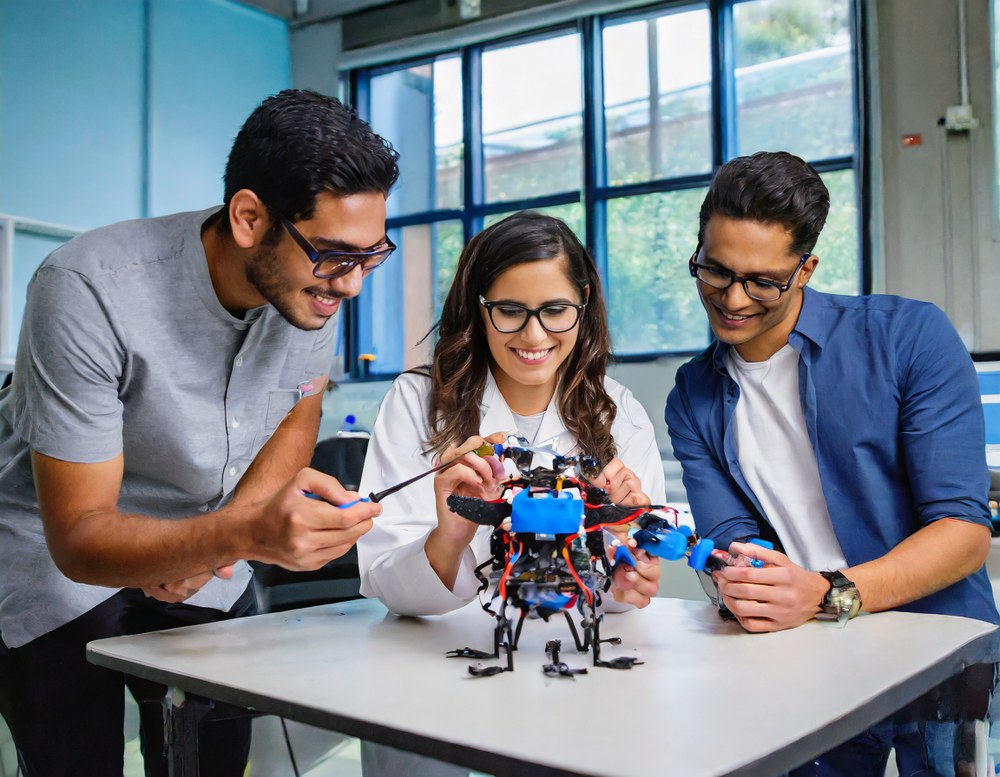Posted: January 3, 2024

AI-generated image of a team of engineers gathered around a robotic insect in the laboratory
During the 2023-2024 academic year, the NSF-funded INSECT NET team has developed and offered two new courses for graduate students enrolled at Penn State. The mission is to facilitate student and faculty collaboration across departments and colleges to build and improve upon technology that tracks insect distributions over space and time.
Insects fill essential ecological niches in urban, agricultural and natural landscapes – they pollinate our flowers, enabling the production of much of the food we eat. They are important decomposers of organic matter, such as fallen trees, leaf litter, carrion and animal waste. They serve as effective biocontrol agents against pest populations and serve as a primary food source for bird, reptile and small mammal populations. However, insects are facing a biodiversity crisis, which jeopardizes the stability of the environment. Until recently, attempts to understand, study and model changing insect distributions and populations over time has been challenging due to the large number of manhours and resources required to do so. We propose that new and developing technology can be leveraged to characterize, explore and mitigate some of the insect declines we are observing more efficiently and with fewer inputs.
During Fall 2023, the INSECT NET team collaboratively taught a new seminar course, ENT530: Technology and Artificial Intelligence for Agriculture and Ecology. This 1-credit seminar provided a crash course in entomology, robotics, sensor design, machine learning, computer vision, and other related topics. Students in the course offered a variety of skill sets and backgrounds, representing eight departments across two colleges. In groups of 3-4, they developed and proposed new biomonitoring tools that leverage the technologies introduced and discussed throughout the course. The final projects were diverse, ranging from automating the detection of slugs in midwestern corn fields to tracking hormone levels in hibernating grizzly bears in real time.
This spring 2024 we are excited to offer a more hands-on, 4-credit course, ENT597: Technology and AI in Living Systems. This course integrates the expertise of our INSECT NET team members to guide students through the building, coding and implementation of a biomonitoring robot for use in greenhouse settings. Students will develop machine learning algorithms to automatically detect the presence or absence of corn earworm caterpillars on greenhouse tomato plants from footage collected by a camera-equipped robot. Further, students will receive training in how to use AI ethically and sustainably, and training in processes required for patent design and product commercialization. Techniques and skills introduced in this course will equip students with an understanding of the need for and complexities associated with the automated monitoring of natural systems to serve a future career in academia, private industry or government.
For questions about the course or to see a copy of either syllabus, please contact Natalie Boyle, INSECT NET program coordinator, at insectnet@psu.edu

